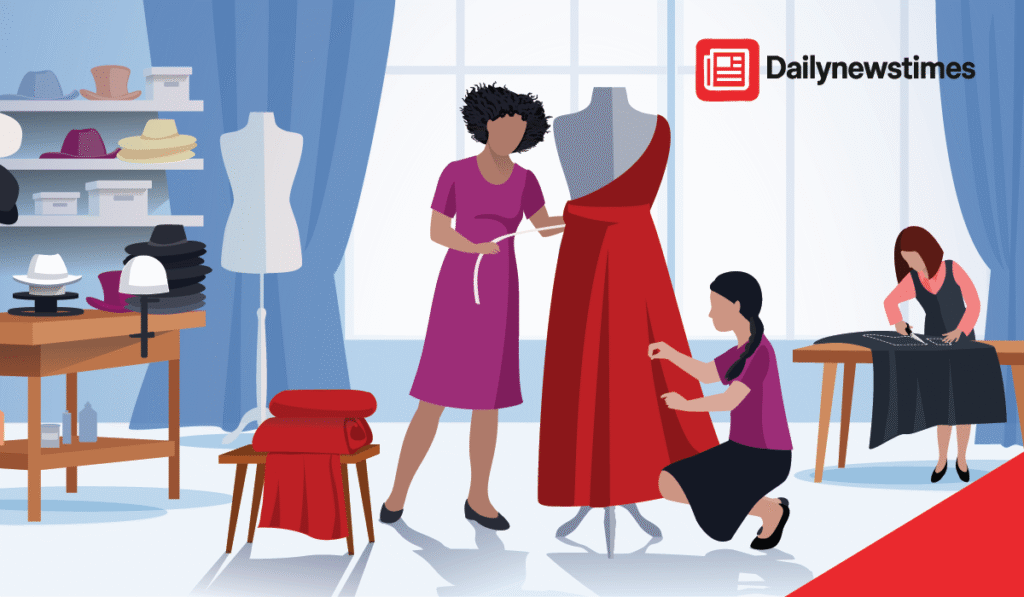Being a clothes representative in today’s fast-paced and competitive fashion world is not just about showing a clothing rack to a buyer and hoping they place an order. It’s far more complex, more strategic, and honestly, more exciting than it used to be. This role sits right between creative fashion design and sharp business negotiation. It connects designers and manufacturers with the people who actually make buying decisions for stores, eCommerce platforms, and even celebrity stylists.
Unlike years ago, the job now requires tech knowledge, sustainability awareness, and great communication skills. A clothes representative has to know the market, spot trends before they’re mainstream, understand fabrics and pricing, and also, maybe most importantly, build strong relationships with clients. They don’t just sell clothes — they represent the identity of a fashion brand.
Understanding the Job Behind the Title
A clothes representative works either in-house for a brand or independently as a sales agent for multiple clothing labels. Their main responsibility is to connect fashion products with retail outlets or distribution partners. They showcase new collections, explain garment features, pricing, and availability, and work out deals with buyers. But nowadays, it’s not just in showrooms — most meetings are done over Zoom, and samples are sent digitally with virtual try-ons or AR tech.
They’re also expected to understand seasonality, buyer behavior, and how supply chain delays or trend shifts can impact purchasing. The job really blends business insight with style instincts.
The New-Age Tools They Use
In 2025, a clothes representative doesn’t just walk around with a sample bag. They often use tools like:
- Virtual Showrooms (like JOOR or NuORDER)
- Sales CRMs for tracking leads and orders
- AI-assisted trend prediction platforms
- AR apps to show clients how clothes fit without a physical sample
Many also work with sustainable clothing brands, so they need to explain the benefits of recycled fabrics, eco-certifications, or carbon-neutral shipping. A lot of buyers now ask questions like “Where’s the cotton sourced from?” or “Is this brand cruelty-free?” — so reps have to be ready with solid, honest answers.
What Makes a Good Clothes Representative
Not everyone can do this job well. A clothes representative must be confident, but not pushy. They should speak the brand’s language clearly, but also listen to what buyers want. It’s really about trust. A good rep builds long-term relationships, not just quick sales.
Here are a few qualities that matter:
- Strong communication skills
- Product knowledge of fabrics, fits, and pricing
- Visual presentation skills for showing collections
- Time management, because they juggle lots of clients
- Adaptability — fashion changes fast, and so does demand
Also, understanding retail margins and how store markups work is crucial. A rep needs to help both the brand and the buyer find a middle ground where both sides feel they got a fair deal.
A Realistic Day in Their Life
It’s not as glamorous as it sounds — but it’s never boring either.
- 8:30 AM: Check emails from international brands or buyers
- 10:00 AM: Join a virtual pitch with a boutique buyer in NYC
- 12:00 PM: Review new season’s collection and update price sheets
- 2:00 PM: Pack samples for a showroom appointment
- 3:00 PM: Zoom call with a brand about delivery dates and fabric delays
- 6:00 PM: Prepare a lookbook and mood board for a buyer who needs “elevated casuals”
- 9:00 PM: Scroll through fashion blogs and TikTok to spot upcoming micro-trends
The days are long, and sometimes deals fall through, but a successful rep knows how to keep going, stay organized, and bounce back from setbacks.
Why This Role Matters in Fashion’s Future
Fashion buyers rely heavily on reps to guide them through overwhelming choices. A boutique might receive 20 pitches a week, and the rep who brings thoughtful insights, understands the local market, and presents the right clothes — is the one who gets that order.
Clothes representatives also give designers real-world feedback. If a style isn’t working, reps will know because buyers won’t respond to it. That feedback loop helps brands improve and stay relevant.
Especially with rising competition in fashion eCommerce, a clothes rep becomes the human layer between tech and trend. They make fashion feel personal again, in a world where everything is automated.
Final Thoughts
Being a clothes representative is no longer a behind-the-scenes, low-profile job. It’s a frontline position in fashion sales, product education, and brand storytelling. They don’t just deliver catalogs — they deliver strategy, experience, and trust.
So next time you see a perfectly curated store shelf or a boutique’s trending collection, remember: someone helped make that happen behind the scenes — someone who understood not just the clothes, but the market, the buyer, and the bigger picture. That someone is a clothes representative.

